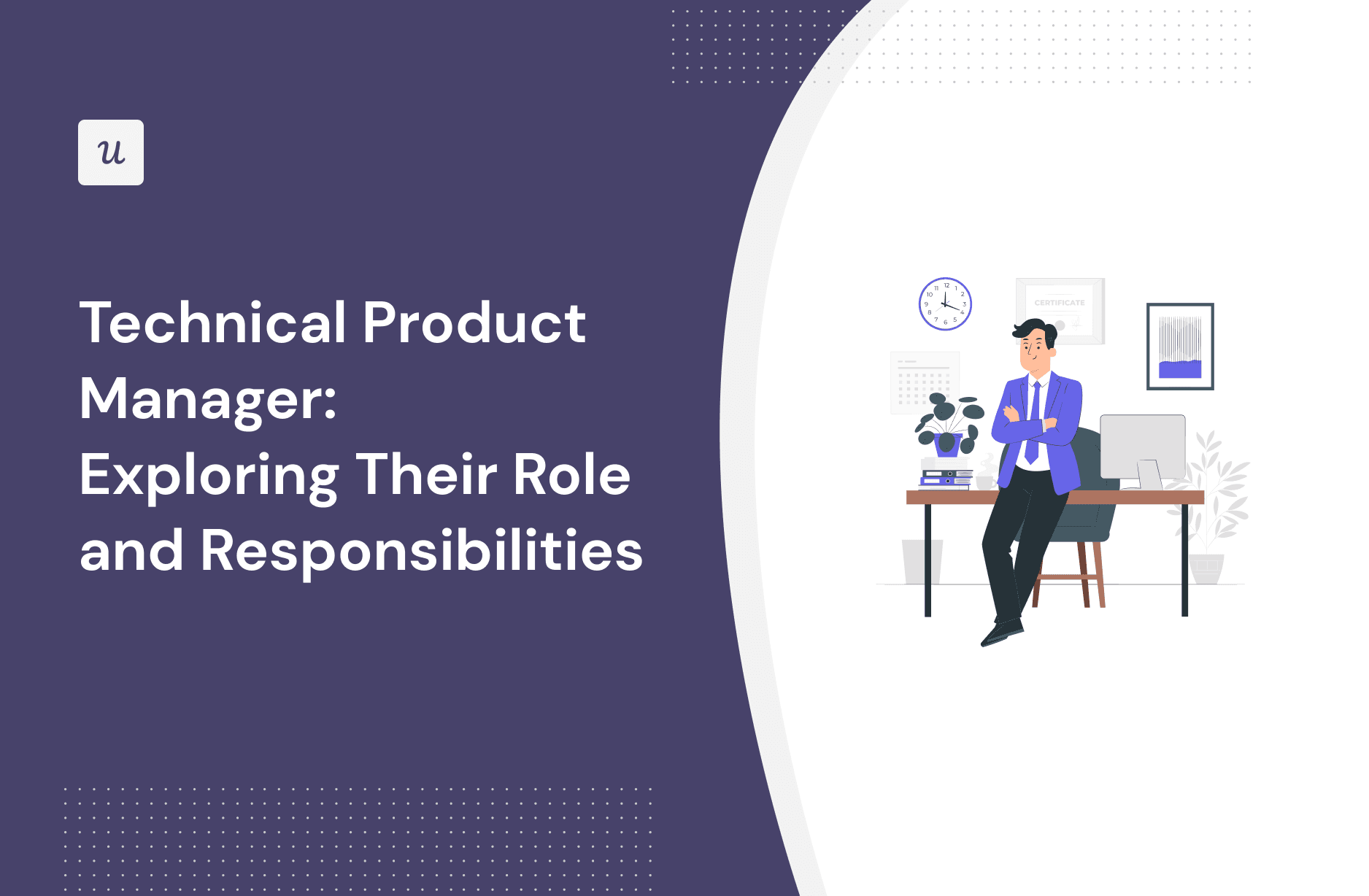Technical Product Manager: Exploring Their Role and Responsibilities

What is a technical product manager?
This is the question that opens our discussion of technical product management.
We also look at:
- The differences between a technical and regular product manager
- Their responsibilities
- The qualities and skills that you need to make it as a technical PM
- How Userpilot can help technical product managers achieve their goals
Let’s get right into it!
TL;DR
- Technical product managers work with engineering and development teams on the technical performance of software products.
- While product managers are more customer and business-centric, technical PMs focus on the technical development and implementation of solutions.
- TPMs are responsible for market and customer research, but their main focus is on satisfying market needs from a technical point of view.
- Tech PMs work actively with product teams on the product vision and strategy.
- A big part of their job is managing the roadmap and prioritizing technical initiatives in the product backlog.
- Technical PMs play an important role in helping the development and product team gain a shared understanding of the product goals and technical requirements.
- Their technical expertise allows them to identify risks and develop effective mitigation strategies.
- Technical product managers are also responsible for running experiments and collecting customer feedback to inform future iterations.
- To become a TPR you don’t need a degree in software engineering, but it will definitely help. However, you need the right mix of technical and leadership skills.
- The technical skills include a solid understanding of software development and system architecture.
- Other important skills and qualities of TPRs are business sense, strategic thinking, communication and negotiation, empathy, and charisma.
- Userpilot is a digital adoption platform with analytics, feedback, and engagement features. Book the demo to see how it can help your technical product managers.
What is a technical product manager?
Technical product managers (TPMs) are professionals with advanced technical and design skills that enable them to lead engineering teams and collaborate with their cross-functional colleagues to ensure product success from the technical point of view.
They usually have a technical background, which gives them a more nuanced understanding of technical solutions and their feasibility. It also equips them with the skills necessary to deal with technical issues and problems.
Technical product managers vs. product managers
Regular and technical PMs usually work together at all stages of the product management process, but their roles focus on different aspects of product development.
Regular product managers are more customer-centric in their approach.
Their focus is on understanding customer needs, shaping product vision and product strategy, bringing the product to the market, and driving its business success.
A technical product manager is involved in what’s under the hood.
They deal with the technical nitty-gritty of product development, like technical specs. They work closely with the design and engineering team on how to best implement the ideas generated by the product team.
The responsibilities of the technical product manager role
So what do technical product managers actually do?
Let’s have a quick look at their main responsibilities.
Conduct market research to identify gaps
Market research is one of the key TPM responsibilities.
The goal is to assess the current situation in the market and competitive landscape focusing in particular on unmet customer needs.
However, in contrast to a regular product manager, technical product managers may spend less time directly interviewing customers and more time working out the technical feasibility and implications of customer requirements.
They use their technical expertise to translate market findings into actionable product specifications, ensuring that the product is both technically viable and meets the market’s demands.

Develop and execute the product vision and strategy
Based on the market, customer, and competitor research, TPMs work with product managers to define a clear and compelling product vision.
This vision outlines what the product should achieve and its long-term goals. It serves as a guiding light for the entire development process.
Once the vision is established, tech product managers help formulate a product strategy that outlines how to develop, market, and position the market.

Create and manage the product roadmap
TPMs work with product managers to create and maintain a roadmap that aligns technical initiatives with product goals and market needs.
This means setting milestones, timelines, and deliverables for the technical components of the product and managing interdependencies to avoid bottlenecks and delays.
In particular, they play an important role in the prioritization of technical initiatives and backlog items that best support product strategy.

Align the development team with the product team
Technical product managers play a crucial role in aligning the development team with the product team to ensure a shared understanding of the product’s direction throughout the development lifecycle.
They act as intermediaries, translating the product vision and strategy set by the product team into actionable technical requirements that the development team can understand and execute.
This bridges the gap between the technical and non-technical aspects of the project, ensuring that everyone is working toward the same goals.
The communication works both ways.
Technical PMs help the product teams understand the technical challenges and constraints involved in the development of particular features.
Finally, TPMs monitor progress and serve as a point of contact for any technical questions or concerns from the development team.
Identify and mitigate risks in technical product management
As TPMs have a deep understanding of the technical aspects of the product, they can proactively identify potential risks.
By assessing the feasibility of technical solutions, evaluating technical debt, and anticipating challenges, they can help the product team prepare and address potential issues before they become critical roadblocks.
Having identified the risks, they work closely with cross-functional teams to develop risk mitigation strategies. They also help create contingency plans to address unforeseen technical challenges that may arise during development.
Finally, TPMs continuously track the implementation of risk mitigation strategies, analyze their effectiveness, and adapt as needed.
Iterate on the product’s technical aspects
TPMs work closely with engineering teams to introduce new technologies, tools, and best practices that can enhance the product’s performance, security, scalability, and user experience.
Once the changes are implemented, they monitor, analyze their performance, and conduct experiments. The insights enable them to identify areas for further technical improvements or optimizations. Rinse and repeat.
Through iterative testing and continuous improvement, they ensure the product architecture and design remain robust and technical debt-free and the product benefits from the latest technological development.
Ultimately, it enables it to retain its competitive advantage and keep meeting the constantly evolving user needs and market demands.

What do you need to become a technical product manager?
Technical product managers often come from an engineering or software development background, so a degree in computer science or a related field will definitely give you the edge.
However, a formal qualification is not necessary to become a TPM as long you have the right skills and drive for self-improvement.
Top skills successful technical product managers have
What skills do technical product managers need?
For starters, TPMs require technical proficiency. A strong understanding of software development, system architecture, data analysis, and product design principles is absolutely vital for their role.
In addition, they need more generic skills you’d expect from good product leaders. These include business acumen, strategic thinking, problem-solving, and project management.
To effectively work with teams from across the organization, they need excellent communication, negotiation skills, and empathy.
As they often have limited formal line authority compared to regular PMs, the ability to inspire, motivate, and influence people is even more vital to getting things done.
How does Userpilot make a technical product manager’s job easier?
Userpilot is a product growth platform that allows technical teams to analyze product performance, conduct experiments, and gather customer insights.
Let’s start with feedback collection.
As a TPM, you can easily create and launch surveys. All it takes is to select a template from the library, customize the design and questions, choose a user segment to target and hit publish. Userpilot also offers a feedback widget that you can use to collect passive feedback.
That’s how you collect and gain customer insights into the technical product performance.

Next comes product analytics.
With Userpilot, you can track feature usage or events and visualize the data in graphs or heatmaps. Trends analytics enable you to track key performance metrics over time so that you can assess the impact of technical updates.
Userpilot also offers funnel and path analysis and cohort analysis.

What if you need beta testers or experiment participants?
You can recruit them with in-app messages that are as easy to design and publish as the surveys. Thanks to behavioral segmentation features, you can trigger your invites for specific users, for example, the power users.

Conclusion
Technical product managers collaborate with other product leaders and engineering and design teams to ensure that the product is technically sound, scalable, secure, and offers a great user experience.
This requires excellent technical knowledge and experience, as well as general leadership skills.
If you’d like to learn how Userpilot can help the TPM at your SaaS, book the demo!

